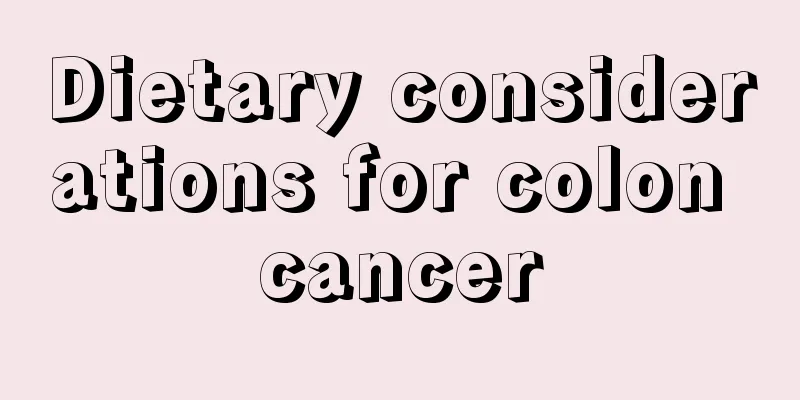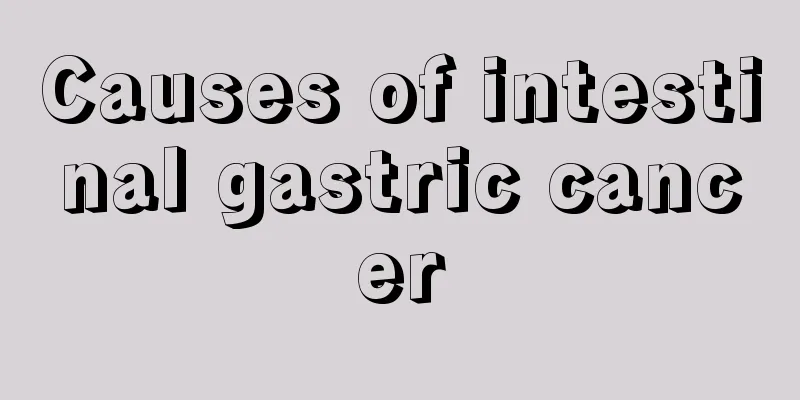Dietary considerations for colon cancer

|
The intestine is the only way for food to pass through, so diet has a great relationship with the occurrence of colon cancer. In addition, the various nutrients rich in food are the basis for enhancing the body's disease resistance, and can also play a certain inhibitory role on external cancer-promoting factors and prevent the occurrence of diseases. Therefore, mastering a scientific diet is the best way to treat colon cancer. The diet for colon cancer should reasonably match sugar, fat, protein, minerals and vitamins. Every day, you should have cereals, lean meat, fish, eggs, milk, various vegetables and bean products, but not too much of each, so as to supplement the various nutrients needed by the body. 1. Foods such as pickles and bacon contain nitrite, a carcinogen, and should be eaten less. 2. Don’t eat too much meat because meat is high in fat. You can eat more fish and shrimp to meet the body’s protein needs. 3. Eat more foods rich in fiber, such as celery, leeks, fresh dates, sweet potatoes, etc.; don’t buy stale or rotten vegetables and fruits for the sake of cheapness. 4. Eat more starchy foods, such as cereals, beans, and plant root foods, and the less processed the better, because the starch in the food can prevent colon cancer and rectal cancer. 5. Eat more fresh vegetables and fruits containing various vitamins. Foods rich in fiber, such as asparagus, celery, leeks, cabbage, radish and other green leafy vegetables, can stimulate intestinal peristalsis, increase the frequency of bowel movements, and remove carcinogenic and toxic substances from the feces. 6. Moldy rice, noodles, peanuts and other foods contain carcinogenic aflatoxin. Once discovered, they should be discarded and not eaten. Wash the rice thoroughly before cooking rice or porridge to reduce the damage of mold to the body. Warm reminder: Common anticancer drugs can cause digestive tract reactions, which are mainly related to the anticancer drugs stimulating and damaging the digestive tract mucosa. Therefore, during chemotherapy for colon cancer, patients should be given light and easily digestible food according to their taste, and small and frequent meals are encouraged. Especially during the intervals of chemotherapy, more attention should be paid to supplementing high-calorie, high-vitamin, high-protein, low-fat foods to ensure nutritional needs. |
<<: Diet therapy for children's colon cancer
>>: Drinking yogurt after colon cancer surgery can speed up recovery
Recommend
In which step is the stock solution used
Loving beauty is every woman's nature. As the...
How can liver cancer be completely cured? If liver cancer is treated in this way, there is a chance of recovery
Liver cancer is extremely harmful to health. It n...
Can people who wear contact lenses take a hot spring bath?
People with myopia who don't want to wear fra...
The efficacy and function of green wheatgrass juice
Many people may not know that wheatgrass juice is...
There is a white particle growing in the corner of my eye
Eyes are the windows to the soul, responsible for...
Common knowledge about medication that patients with hamartoma should know
If you are unfortunately diagnosed with hamartoma...
Ways to prevent respiratory diseases
We all know that the environment we live in every...
What is the normal value of uric acid? What happens if uric acid is high?
The product of purine metabolism is clinically ca...
Pain on the right side of your mouth when you open it?
The pain in the bones on the right side when open...
What are the dangers of girls staying up late
It is common nowadays for young women to stay up ...
Can I take vitamin C if I have stomach cancer?
Is it okay to take vitamin C for stomach cancer? ...
Four common detailed causes of colorectal cancer
In recent years, there have been many cases of co...
How to get rid of garlic smell
Many people like to eat garlic, but because there...
Can scallion white cure insomnia
Scallion whites generally cannot treat insomnia, ...
Tips on how to make eyelashes longer
Everyone envies long and thick eyelashes. Many wo...









